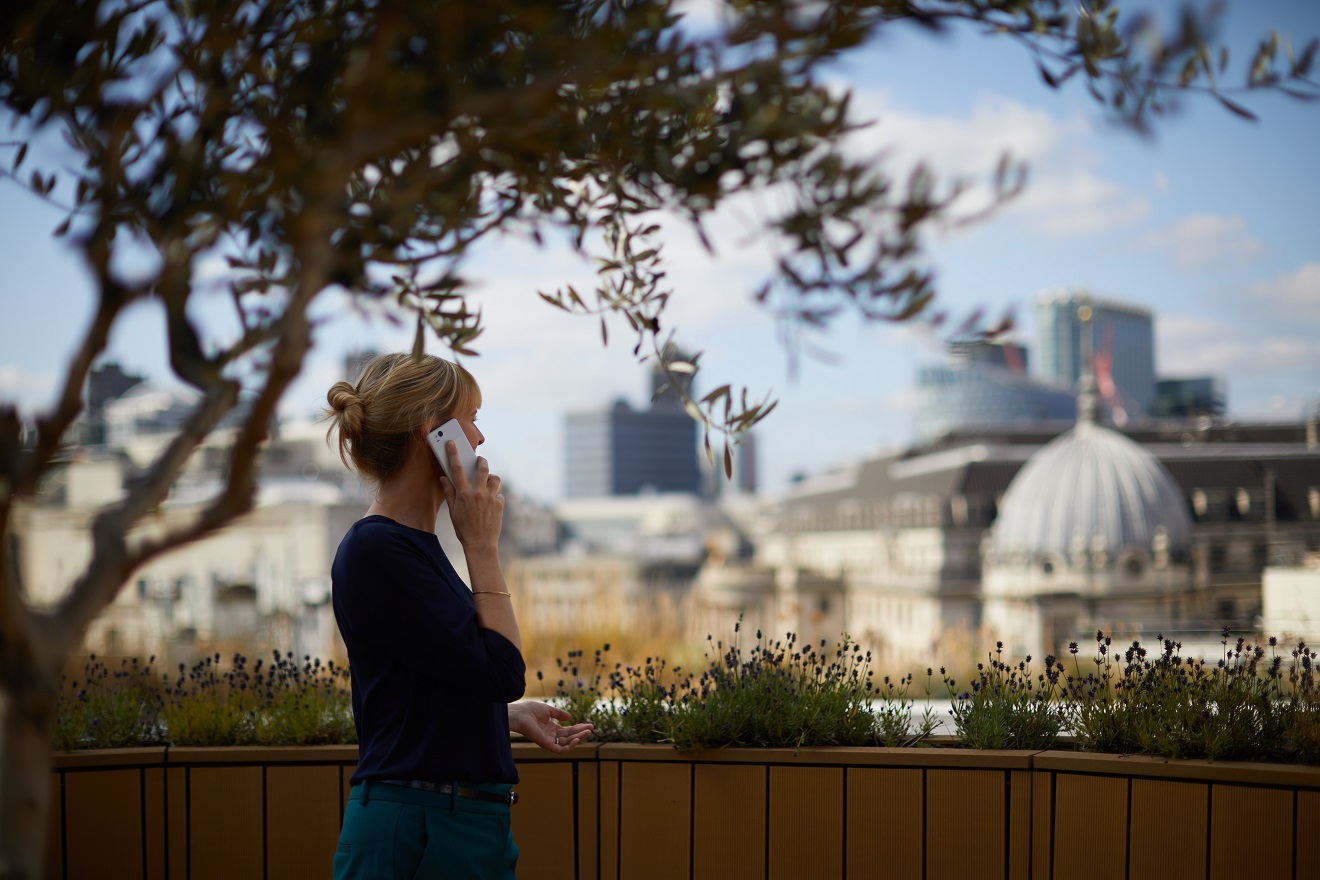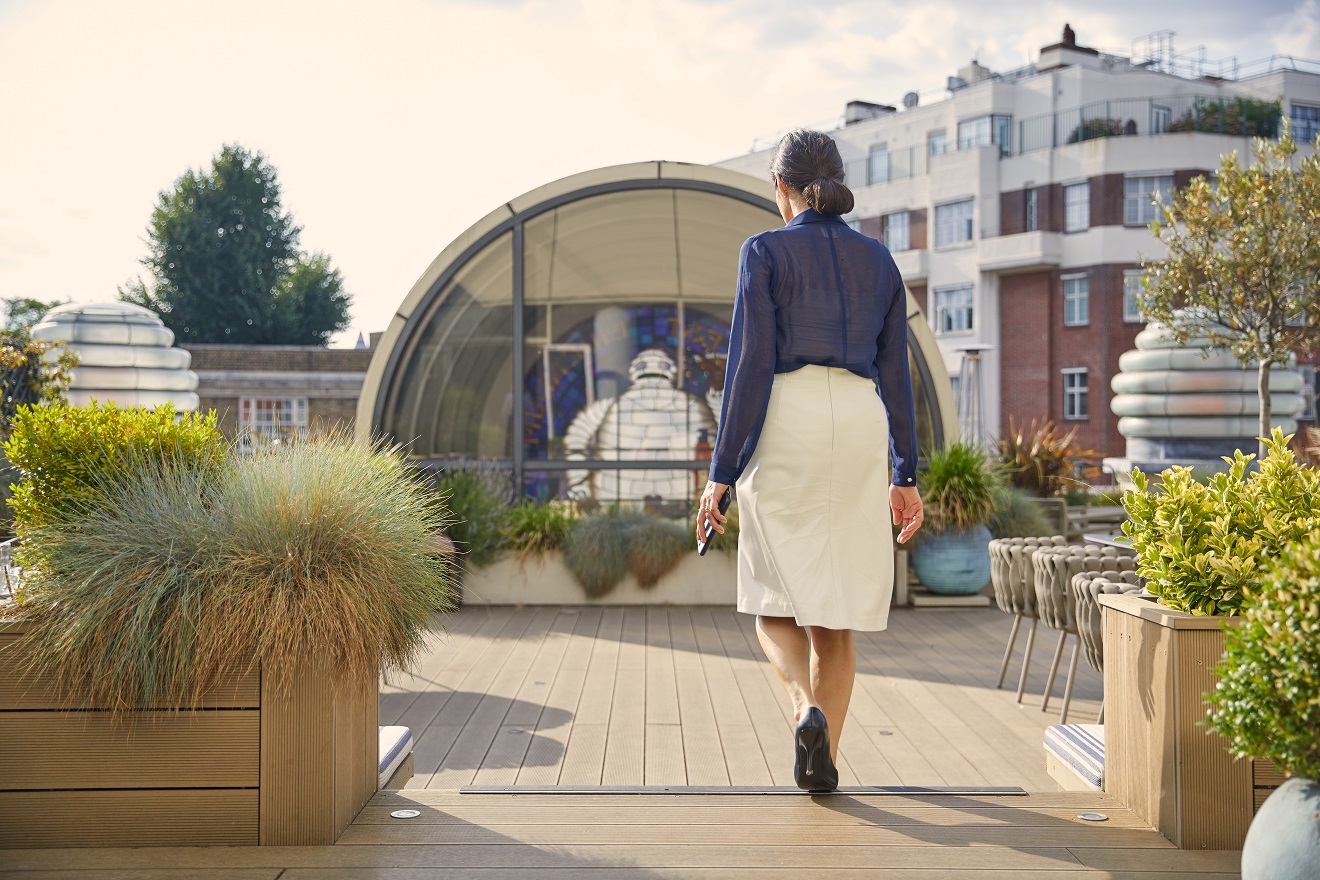As lockdowns ease across many parts of the world, one of the topics on everyone’s lips is how we return to our offices safely. Experts, journalists and corporations across the world have been casting their vote on what the world of work might look like, and some of the questions we’ve been considering at The Argyll Club are if we will see our commute into the office reduce its reliance on crowded trains and increasingly hinge on a cycle or walk, and whether this will reshape our understanding of an ‘office’?
What are the facts?
At The Argyll Club in London, we surveyed recent requests from our members to see what they were demanding from their offices, and two noticeable trends emerged: the desire for a safe, healthy commute and support in creating a working week that a team can split between the office and home.
Our survey found that 80% of our members require secure bike storage in their workspaces, as well as shower facilities. Clearly, demand for commutes where individuals can enjoy being outside in the fresh air is on the up, and this coincides with increased interest in workspaces conveniently located closer to the suburbs. In London, this translated to a 10% rise in enquiries about workspaces in Belgravia, Knightsbridge and Chelsea, away from the typically busier business hubs in the city centre. We have also seen a surge in demand for products like virtual office addresses, offices to rent by the day and drop-in membership to our coworking spaces and business lounges.
Two wheels prove best
So, while businesses are busy adapting workspaces with social distancing, increased cleaning schedules, masks and sanitizer, they should be careful not to miss this opportunity to provide their teams with a healthier way into work.
With cycle initiatives like ‘Bike New York’, Berlin’s pop-up cycle lanes and the StreetSpace initiative in London, there are already schemes in place across the world that can help facilitate new ways of living and working post lockdown.
Employers should consider how they could use these schemes, as well as workplaces that offer facilities like bike storage and showers, to support employees’ new-found desires to cycle to work.

Space when you need it
During this pandemic, everyone has been exposed to new styles of working and modes of thinking – take the recent study from Cass Business School, IESE Business School and SD Worx, which found that 65% of British white-collar workers are working remotely during the crisis, almost half of whom had never done so before. As such, it’s natural that we are all reconsidering things that we previously thought were cemented – like the way we get to work and where we work best.
Of course, everyone’s now looking for clean and socially distanced offices, but recent discussions with our members also show that many are using this period as an opportunity to introduce more agile working practices into their business model. For example, we have seen an uptick in demand for virtual offices, which allow a team to work remotely but the business itself to retain its roots (and mail and call handling services) in the city with access to meeting rooms when required. Also, we’re seeing a new flexible workspace solution emerge – a ‘day office’.
It’s a simple concept: an office just for the day, whenever and wherever you need it, which allows you to seamlessly transition from home to office throughout the week. As such, it doesn’t compromise on any of the amenities of typical serviced offices and co-working spaces, but does help remove the financial burden of a long-term lease.
This could well be the future of work for many thriving businesses – commercially sensible for businesses and positive for employees’ work-life balance. In fact, a savvy employer can book an office for the day located close to the particular team that is using it. For example, in London, you could select a space in Chelsea if the team you’d like to work together that day is based in the South West suburbs, so they can more easily cycle or walk to work.
With millions of workers suddenly thrust into remote working, lockdowns have given new importance to maintaining a healthy work-life balance.
However, just because the office is flexible, it doesn’t mean that employee engagement and wellness have to be compromised. Workspaces that still have tech and administrative support, as well as productive break-out spaces and private phone booths, are easily available. The key is incentivising teams back into the office by offering a seamless and engaging workspace when required, whilst keeping their safety and wellness at the centre of all decision making. Products like this mean that each week can be different, and teams come into the office only when they want or need to.
A balancing act
With millions of workers suddenly thrust into remote working, lockdowns have given new importance to maintaining a healthy work-life balance. As such, the return to work must be rooted in each individual’s needs and desires, with offices that place quality, consistency and employee wellness centre-stage; this also helps businesses show employees they are taking the return to work seriously.
Employers who overlook new-found desires for cycling and walking to work could well fall behind – and perhaps a silver lining of the pandemic will be a recalibrated focus on wellness and health in the workplace. Managing this return to the office will really be a balancing act but, if we get it right, employee health and workplace wellness could benefit.


